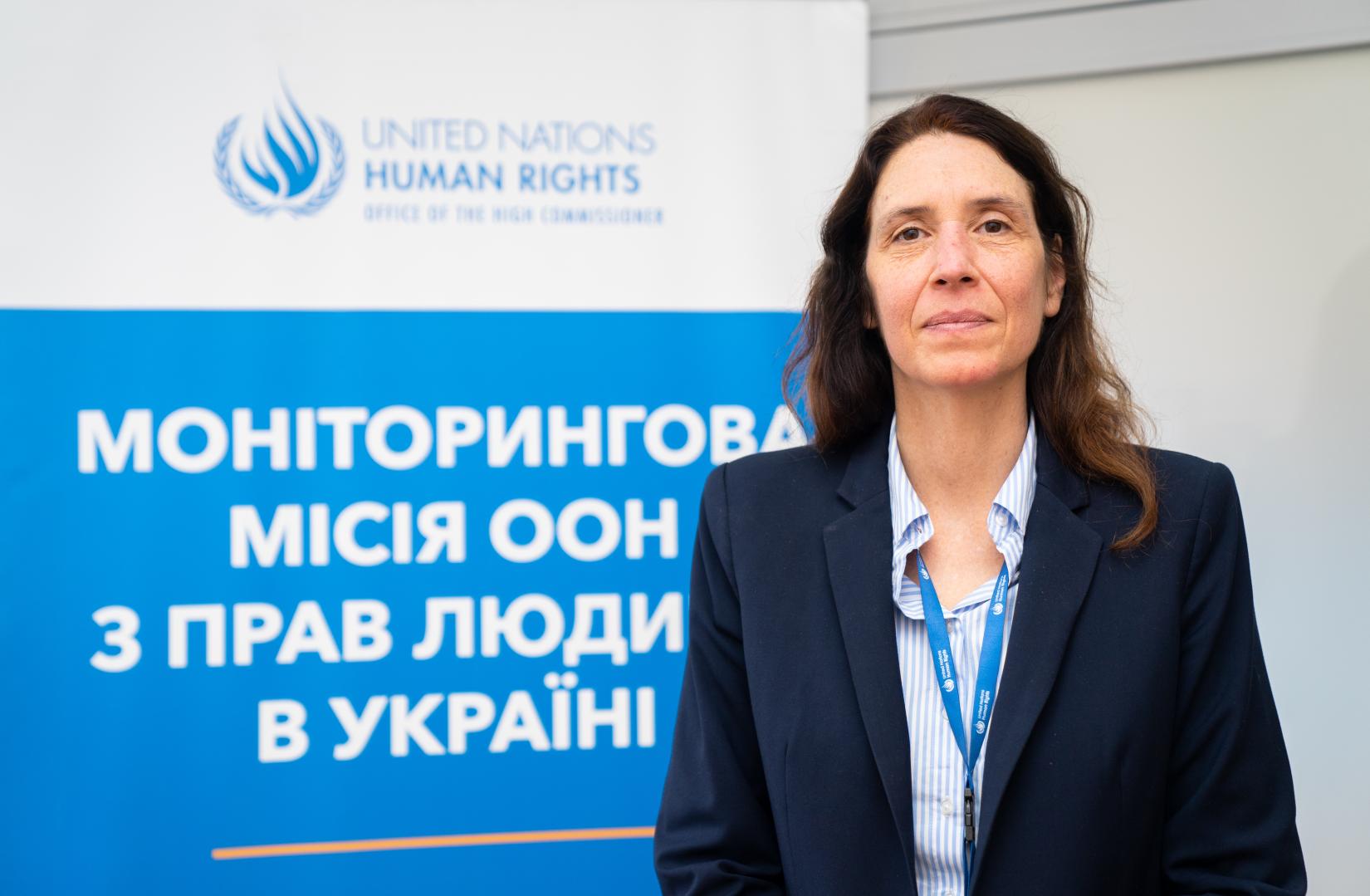Civic space and fundamental freedoms under pressure in Ukraine, says UN Human Rights
09 December 2021
Duty bearers throughout Ukraine need to do more to foster civic space, including by promoting fundamental freedoms and enhancing inclusive and meaningful civic participation in public affairs, says a new UN Human Rights Report released today. The report is based on the work of the UN Human Rights Monitoring Mission in Ukraine (HRMMU) and covers the period from 1 November 2019 to 31 October 2021.

The report looks at civic space and fundamental freedoms in Ukraine, with particular attention to freedoms of opinion and expression, peaceful assembly and association, and the situation of human rights defenders in territory controlled by the Government, territory controlled by self-proclaimed ‘Luhansk people’s republic’ and self-proclaimed ‘Donetsk people’s republic’ and in the Autonomous Republic of Crimea and the city of Sevastopol, Ukraine, occupied by the Russian Federation (Crimea).
Journalists working on sensitive political topics faced attacks in Government-controlled territory. Human rights defenders, including those working on women’s rights and gender equality, corruption, minority rights, and the environment also faced attacks, threats, acts of intimidation and hate speech. “In most cases perpetrators were not held to account, contributing to a sense of impunity and fueling further attacks. While we recognize that the Government has made some efforts to improve the situation, more efforts are needed to ensure justice,” said Matilda Bogner, Head of HRMMU.
The report finds that attacks against opposition political parties, their members and staff, increased before and after the 2020 local elections in Government-controlled territory, negatively affecting the rights to freedom of opinion and expression, peaceful assembly and association and the right to participate. The report also describes how those who criticized the implementation of the State language law faced threats, intimidation, physical violence and property damage.
The report highlights that a number of decisions taken by the Government led to the closure of media outlets, thereby restricting freedom of expression and public access to information. The decisions failed to demonstrate compliance with international standards on permissible restrictions on freedom of expression as they were not taken by an independent authority and did not demonstrate necessity and proportionality.
Restrictions imposed by armed groups of self-proclaimed ‘republics’ on free speech in social media led to increased self-censorship and a reduction in open expression of critical opinions about political, social and economic issues. In at least four cases, UN Human Rights found that social media users faced arbitrary detention and criminal penalties for expressing views online. Human rights defenders, particularly women human rights defenders, faced a high degree of insecurity.
“There is little space for free expression and assembly in territory controlled by self-proclaimed ‘republics’,” said Ms Bogner. “Punishing people for expressing opinions and participating in policy discussions that affect their safety and well-being is contrary to international human rights law,” she added.
In Crimea, journalists faced a genuine risk of retaliation for critical reporting, says the report. The requirement for pre-authorization for peaceful assemblies, and the prosecution of participants undermines the right to freedom of peaceful assembly on the peninsula. Human rights defenders, including criminal defence lawyers, faced prosecution and intimidation as retaliation for carrying out their professional responsibilities. Groups and individuals perceived as opposing the occupation of Crimea or critical of Russian Federation policies in Crimea, such as the Mejlis and Crimean Solidarity, suffered unjustified interference into their activities.
“The Russian Federation, as the occupying Power in Crimea, must take concrete steps to improve the environment for civic space for those that want to express their opinions or carry out peaceful assemblies,” Ms Bogner said.
The report provides specific recommendations to the Ukrainian authorities, to self-proclaimed ‘Donetsk people’s republic’ and self-proclaimed ‘Luhansk people’s republic’, and to the Russian Federation, as the occupying Power in Crimea.
The full text of the report is available in English, Ukrainian and Russian.
For more information or media enquiries, please contact Kateryna Girniak at +380504868364 or e-mail consultant.girniak@un.org


